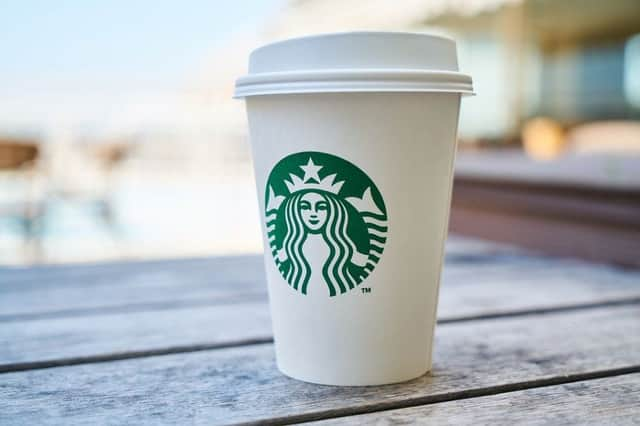Starbucks to charge extra 5p for paper coffee cups


The coffee chain will start charging customers who wish for their drink to be served in a takeaway cup an extra 5p from 26 July for a three-month trial period.
Advertisement
Hide AdAdvertisement
Hide AdThis time the charge will apply at all 950 of its branches across Britain, including those in Scotland.
The company hopes the charge will encourage customers who want to order a drink to takeaway to bring a reusable cup into stores with them.
Those who do so already get 25p deducted from the cost of the beverage they buy.
Starbucks said the London trial resulted in a 126 per cent increase in the uplift in the use of reusable cups in participating stores, measured by the number of customers who availed of the 25p discount.
Most disposable coffee cups have a plastic, leak-proof coating that must be separated from paper before recycling, which very few paper recycling systems are able to do.
As a result, it is estimated more than 99 per cent of disposable cups do not get recycled.
The UK could use as many as five billion coffee cups a year, the environmental consultancy Eunomia has suggested.
Martin Brok, president of Starbucks Europe, Middle East and Africa, said the earlier trial produced “encouraging results” and noted staff and customers had continued to push the company to find ways to reduce waste.
Advertisement
Hide AdAdvertisement
Hide Ad“Extending this to all our stores across Britain is an exciting step and we’re hoping this charge will remind customers to rethink their use of single-use plastic as it has with plastic bags,” Mr Brok said.
